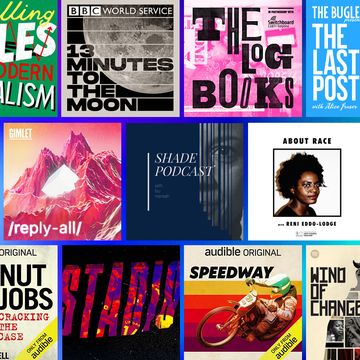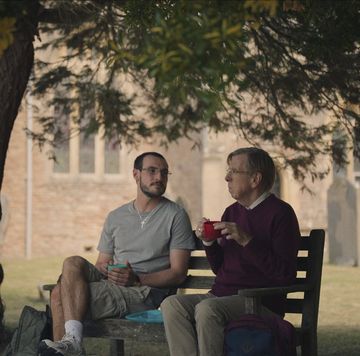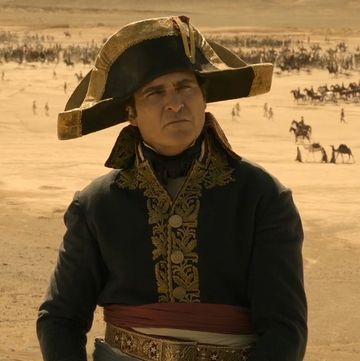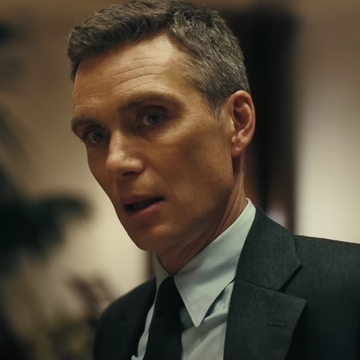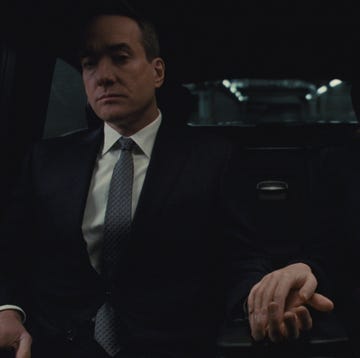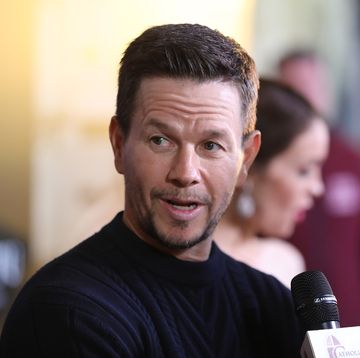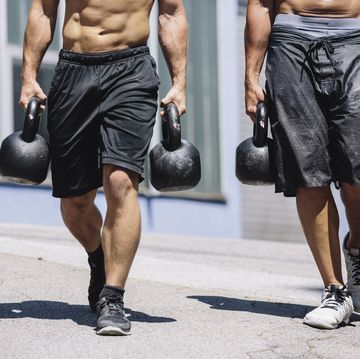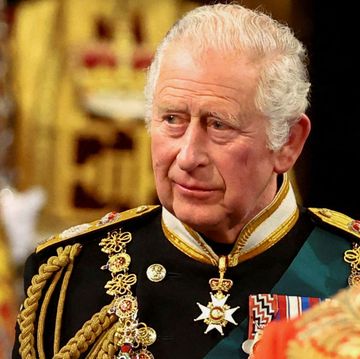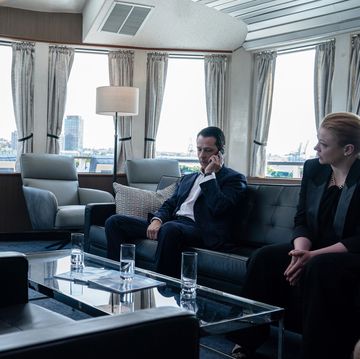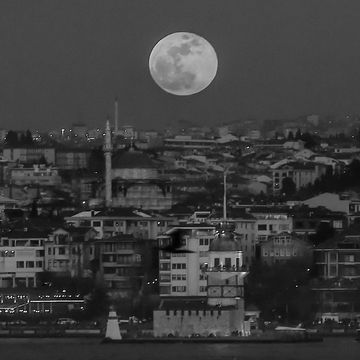Prince Harry and Meghan Markle's upcoming wedding is anything but typical, even by royal standards. The bride is an American actress (and the first person of a mixed-race heritage to marry into the royal family). There's that $43 million price tag. And even Harry stands out, not just for his social exploits, which have long been documented by the British tabloids, but rather for his quite lengthy and legitimate military career—something for him that was as much a way of serving his country as it was an escape from the public eye.
"You can only fit a certain amount of people in a helicopter, therefore no one can follow us," he joked at the end of a four month combat tour in Afghanistan back in 2013. No one, of course, meant no press. A helicopter represented a means of escape. Life in the chopper was a predilection he shared with his brother, father, and uncle, all of whom learned to fly military helicopters as well.
Service is not required for members of the British royal family. But that desire to step out of the spotlight had a strong appeal. Just before he deployed for his second tour in Afghanistan in 2012, photos of Harry gallivanting naked in Vegas emerged. Typical laddish behavior from Harry, wrote the British tabloids. They'd hounded him since childhood, through the loss of his mother, and into his twenties. For Harry, it was another reminder that he was always being watched.
"My father's always trying to remind me about who I am and stuff like that," he told the Guardian when his second tour ended. "But it's very easy to forget about who I am when I am in the army. Everyone's wearing the same uniform and doing the same kind of thing. I get on well with the lads and I enjoy my job. It really is as simple as that."
Of course, it wasn’t always that simple. Harry's 10-year career in the British Army, which he began as a recruit at the Royal Military Academy Sandhurst in 2005, was subjected to as much attention, if not more, than his recreational exploits. Considering the constant swirl of press focused on the royal family in the first place, to add the element of an ill-advised, lengthy, and bloody war to the mix perhaps unsurprisingly exacerbated the public’s appetite for coverage.
The fact that there was now an actually newsworthy reason to keep tabs on Harry made the press even more eager to oblige that demand. It’s no wonder the plan backfired in a way.
In 2006 it was announced that Harry's unit, the Household Cavalry's Blues and Royals, was heading to Iraq. Across the board, British media squabbled over the wisdom of sending such a high profile figure to the frontline. No royal had served in a combat zone since Harry's uncle Prince Andrew in the Falklands War. To his credit, Harry remained adamant that if his unit was sent, he wanted to be there with them.
"If they said 'no, you can't go frontline' then I wouldn't drag my sorry arse through Sandhurst and I wouldn't be where I am now,” he had said in 2005. "The last thing I want to do is have my soldiers away to Iraq or wherever like that and for me to be held back home.”
Although the head of the British Army agreed he should go, that decision was ultimately reversed. For one, the military feared Harry's celebrity might put others at a higher degree of risk. To their point, it was later reported that Osama bin Laden had taken a special interest in his potential presence in Iraq.
As a result, it was resolved that his next attempt at deployment, this time in the Helmand province of Afghanistan in 2008, would be kept secret. The gambit proved successful for some ten weeks, owing to the cooperation of British media who had agreed to not report the news, until an Australian magazine, New Idea, broke the story.
"What the last two months have shown is that it is perfectly possible for Prince Harry to be employed just the same as other Army officers of his rank and experience," said Chief of the General Staff, Sir Richard Dannatt, after the story hit the newspapers.
That was pulled off, in part, by reminding the rest of the troops to keep their mouths shut.
"When people come along we just brief them saying: 'When you phone home don't start saying guess who I'm working with,'" Dannatt told the Telegraph.
A Household Cavalry officer at this point, Harry's role was to coordinate air strikes from the ground. A few years later a Telegraph reporter John Bingham wrote about witnessing Harry at work. He watched on a screen as a man ran for cover from a jet flying overhead.
"Moments later the outlines of fields and mud-walled compounds vanished into a cloud of dust," Bingham wrote. "I watched it unfold like a surreal video game on a laptop screen a few miles away…”
The prince’s first kill.
A month or so later, Harry fired a .50 caliber machine gun at Taliban soldiers for the first time. "It's just no man's land... they poke their heads up and that's it," he said, while a Ghurka soldier commemorated the occasion for him on Harry’s camera. In a picture published by the Telegraph, he’s smiling ear to ear, like a boy at play.
By 2012, he had completed training as a pilot of Apache helicopters, as well as gunship training in California. He was reportedly quite good at it.
"It sounds like a con, but Harry is genuinely shaping up to be one of the best young Apache pilots this country has ever seen," a British military source said in 2011, laying on the praise rather thick.
"His handling, hand-eye coordination, reaction speeds, he's a natural. Any doubters who said, 'Harry is royal, he's getting special treatment,' can leave the room now. His talent is leaving his trainers openmouthed."
But that characterization of the prince, a boy who couldn’t help getting into mischief, continued to follow him.
Army heads considered Harry's new position as a co-pilot gunner in the helicopter to be less of a risk than operating on the ground as he had before. He would finally find the space he was looking for.
The media, however, weren’t quite so easy to escape. Speaking in an interview in 2013 from his base—one in which he had to pull his microphone off and scramble on a moment’s notice to his position—he reluctantly answered questions about his experience in the service.
"I never wanted you guys to be out here, but there was an agreement made to invite you out on a deal that you—that the media didn't speculate before my deployment. That's the only reason you guys are out here," he said.
Giving a tour of his sparse living quarters and his helicopter, he talked about fitting in: "It's completely normal. It's as normal as it's going to get. I'm one of the guys. I don't get treated any differently. Our job out here is to make sure the guys are safe on the ground and if that means shooting someone who is shooting at them, then we will do it."
Operating the weapons was "a joy," he explained at another point in the interview, "because I'm one of those people who loves playing PlayStation and Xbox. So with my thumbs I like to think I’m probably quite useful... You can ask the guys I thrash in FIFA all the time."
And there it was, the type of pull quote he had been hoping to avoid.
A Telegraph writer was among many to criticize him harshly for his seemingly cavalier attitude. Yes, soldiers talk like this, Harry Mount wrote, and yes it was admirable that he was roughing it in the desert, despite his privileged upbringing. "But, still, he isn’t like other soldiers, much as he'd like to be."
Other army members were highly critical of his comments as well, saying he was acting like a spoiled brat.
Harry's service was done in 2015, and he reflected thoughtfully on the toll of war a year later, writing in the Times of seeing the wounded returning home—something he never experienced firsthand during his tours:
On my first tour to Afghanistan in 2007-8 and again more so on my second tour in 2012-13, I saw some horrendous things: the tragic injuries and deaths of local people from roadside bombs, some of whom were children; coalition forces lying on the battlefield; and the constant ferrying of injured personnel to the hospital in Camp Bastion. Radioing in the details of their injury to the hospital (which sometimes included the phrase 'Op vampire,' when the casualty would need a lot of blood—it still sends shivers down my spine), or lying in bed late at night while our accommodation shook from the downforce of the Chinook and Black Hawk helicopters, was a constant reminder of what was happening all around. See it, smell it, hear it, feel it, there was no escaping it.
It's no doubt that the experience changed Harry. After returning from the battlefield, he created the Invictus Games, a Paralympic-style sporting event for injured service members, to inspire and support the wounded. The first games took place in London in 2014 and were attended by David Cameron, Prince Charles, Prince William, and other foreign dignitaries. Sydney, Australia, will host the 2018 games, and 17 countries are slated to participate.
In that 2013 interview on base, he had looked back on his exploits in the tabloids after the Las Vegas incident. "It was probably a classic example of me probably being too much Army, and not enough Prince," he said.
Now, finally, with the Invictus Games, it seems he found a way to combine both.

Luke is a writer from Boston who writes the newsletter Welcome to Hell World and author of a book of the same name.



